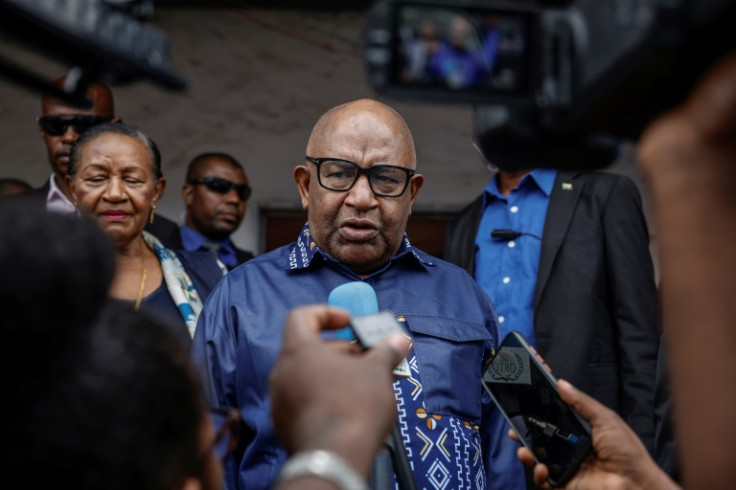
Former coup leader Azali Assoumani won re-election Tuesday in the first round of an already disputed presidential vote in the Comoros, an Indian Ocean island chain, dismissing a low turnout and allegations of fraud.
Sunday's poll was tainted by opposition claims of ballot rigging and voter apathy, but the head of the electoral commission Idrissa Said Ben Ahmada on Tuesday announced Assoumani had won 62.97 percent of the vote.
The 65-year-old's victory over five opposition challengers was expected, but does not appear to have generated much enthusiasm -- only 16.3 percent of the country's 340-000-strong electorate turned out, according to the official results.
But if the supreme court validates the result on Sunday, Assoumani -- the current chairman of the African Union -- will embark on a third consecutive term and rule until 2029.
"This is a strong moment for our country, which is doing everything in its power to consolidate democracy," the re-elected leader told a gathering of supporters.
In a country that has seen more than 20 coups and attempted coups since independence from France in 1975, Assoumani hailed his backers for "political maturity".
And he warned: "My competitors must follow legal channels, They have to play fair.
"Our country will not be able to achieve its objectives for progress without a united, peaceful country, solid institutions and respect for democratic principles," he said.
The opposition, meanwhile, expressed anger. In a joint statement released even before the official results, the other candidates denounced what they claimed was ballot-stuffing and fraud.
"This regime, with the complicity of certain institutions implicated in the electoral process, wants to falsify the results," they said, alleging that troops had disrupted voting.
On Monday, candidate Issa Salim Adillah -- who came second with 20.26 percent in the official results -- had warned that the opposition had "an action plan that we will roll out at the right moment".
International observers had earlier announced that as far as they had seen the election had been carried out in "peace and tranquility" -- despite opposition claims of violence.
A former army chief-of-staff, Colonel Assoumani initially came to power in a coup in 1999, in one of the many military takeovers that have rocked the islands since independence.
In 2002 he stepped down as military ruler and won the presidential election for the newly constituted Union of Comoros, made up of three semi-autonomous islands, each with its own separate leadership.
He reluctantly handed over to civilians in 2006, under a new constitution that established a rotating presidency between the three islands of the Union: Grande-Comore, Anjouan and Moheli.
He then retired into farming before returning to politics and winning re-election in 2016 in a vote marred by violence and allegations of irregularities.
Leaving power "was a mistake" not to be repeated, Assoumani once told a diplomat in the capital Moroni.
During his rule he has been accused of creeping authoritarianism. His arch-rival ex-president Ahmed Abdallah Sambi was given a life sentence for high treason for allegedly selling passports.
During this year's campaign, Assoumani hailed his government's construction of roads and hospitals.
But in a country where 45 percent of the 870,000 population live below the poverty line, plagued by electricity cuts and water shortages, he has faced popular criticism.
Azali nevertheless always said he was confident of victory and on Sunday, rejecting accusations of fraud, he noted that a quickly expedited election with no second round would save "time and money".







